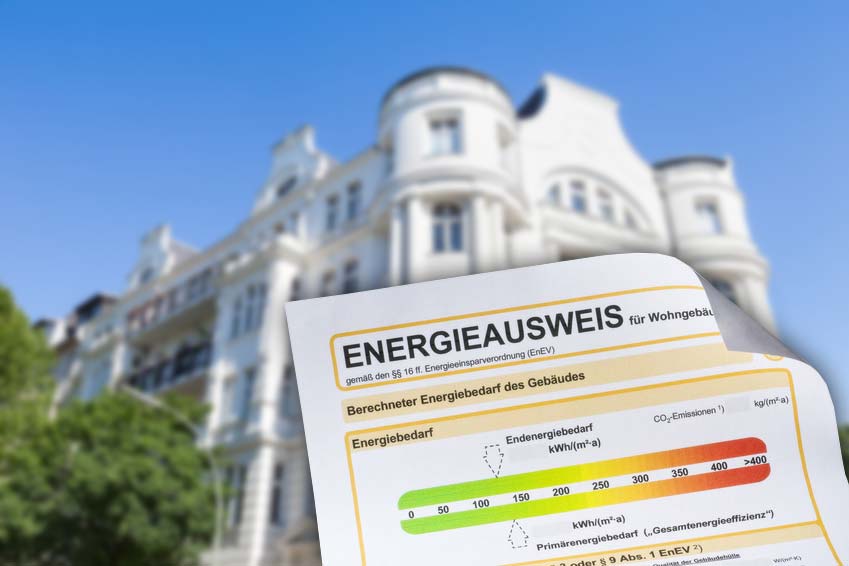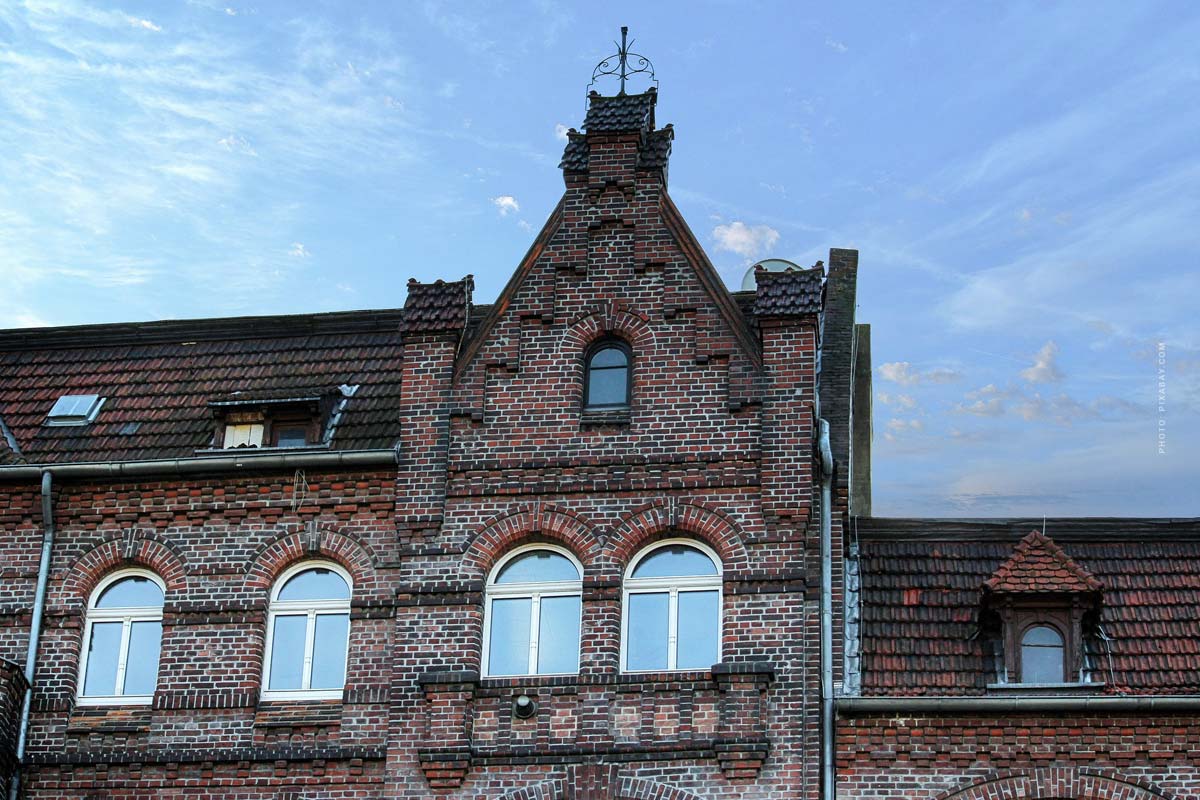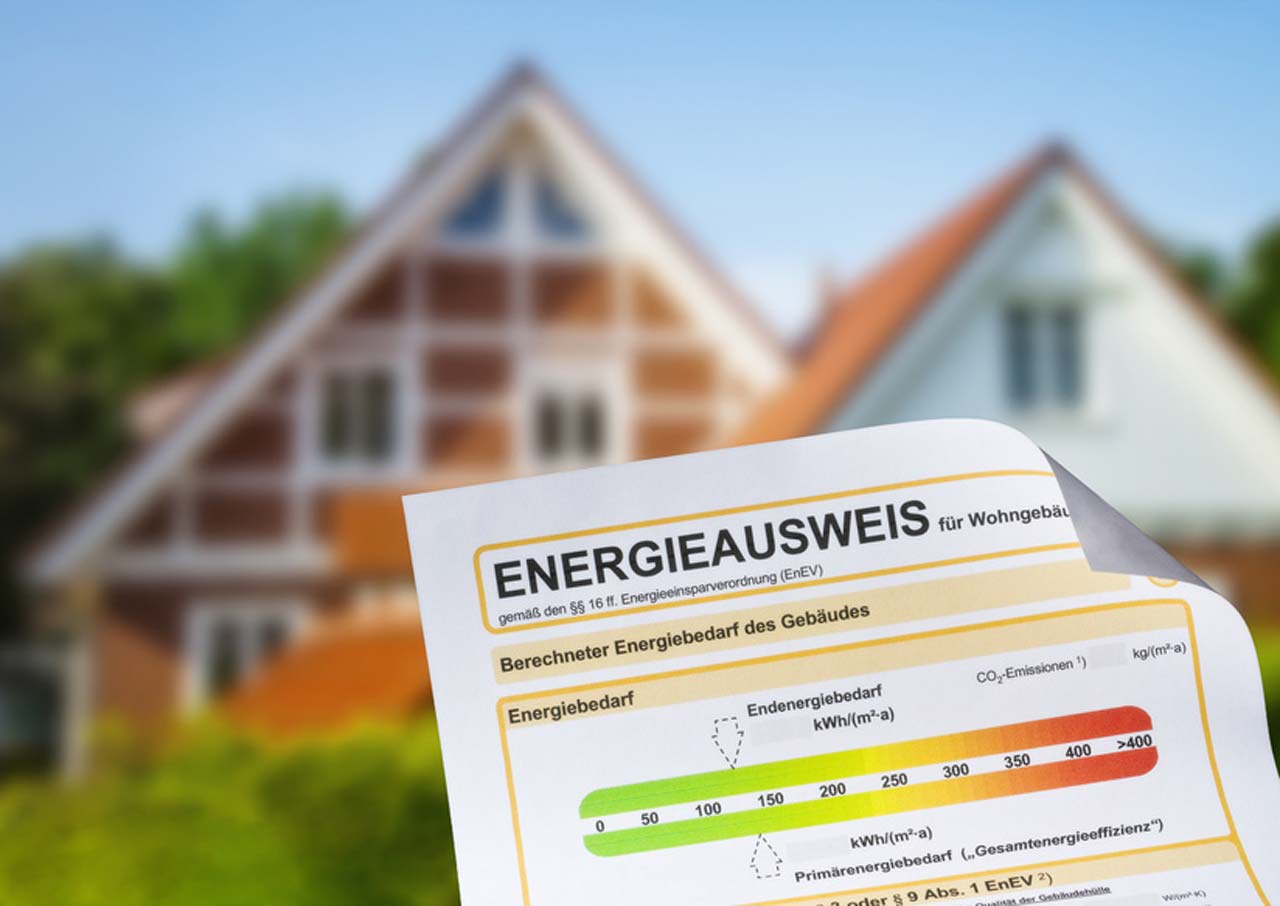Energy certificate for sale: compulsory? Content, structure, costs – quickly explained
The energy performance certificate in Germany – In short: an energy performance certificate is required by law when selling a property. The energy status of a property is one of the most important factors for potential buyers when making their decision. The energy performance certificate provides information on the energy efficiency of the house and forecasts future energy consumption. Energy efficiency is rated on a scale from A+ to H, with H indicating an urgent need for action in terms of energy refurbishment and that the property is no longer up to date in terms of energy consumption.
No real estate sale without an energy certificate
The creation of an energy performance certificate (in accordance with §16 of the EnEV) may only be carried out by qualified experts. This means that you need to look for an expert with the appropriate license. According to §16 EnEV, every potential buyer of a property must receive an energy performance certificate. As the owner and seller of a property, you are obliged to have the certificate drawn up and to include it in the sales documentation. Refusal to present the energy certificate is an administrative offense and can be punished with a fine of up to 15,000 euros.
Why is the energy performance certificate so important?
It provides the buyer with all relevant information on the energy status of the property. It also provides information on the previous energy consumption and the expected energy costs for the future owner. A negative energy balance indicates to potential buyers that refurbishment is necessary, which can mean high costs for replacing the electrics and heating system, for example.
Energy certificate quickly explained
The 5 most important facts about the energy performance certificate
- Legal obligation: An energy performance certificate is required by law when selling a property.
- Decision criterion: The energy efficiency of the property is a key criterion for potential buyers.
- Information on energy efficiency: The energy performance certificate provides information on the energy efficiency of the house and the predicted energy consumption.
- Scale from A+ to H: Energy efficiency is rated on a scale from A+ to H, with H indicating an urgent need for renovation.
- Administrative offense if not presented: Owners must have the energy performance certificate drawn up and present it; refusal to do so can be punished with fines of up to 15,000 euros.
The energy performance certificate, or the energy status of the property, also plays a role in real estate valuation and the valuation of apartment buildings.
Structure: Content and structure explained
Here is a short video explaining the individual elements of the energy performance certificate step by step.
Demand or consumption certificate? Costs and benefits
Both forms work, but here is the difference between:
- Consumption certificate
- Demand certificate
Consumption certificate quickly explained
A consumption certificate usually costs 100 euros, while a demand certificate costs between 300 and 500 euros. The cost of the energy performance certificate is borne by the owner, who is obliged to provide this data when selling the house. A meaningful energy performance certificate provides more detailed information for the buyer and is therefore recommended, even if it costs more.
The consumption certificate is based on the last 3 annual bills from the energy provider. It provides information on the past energy consumption of the building and, compared to the consumption certificate, offers less precise data on the energy status and future consumption.
- Costs: A consumption certificate is cheaper than a demand certificate, which is more expensive.
- Historical reference: Based on the last 3 annual bills of the energy operator.
- Limited informative value: Provides less precise data on the energy status and future consumption compared to the demand certificate.
Demand certificate quickly explained
The demand certificate costs between 300 and 500 euros and contains specific facts that are checked by an energy consultant on site. In contrast to the consumption certificate, the demand certificate looks at energy consumption in perspective. An expert assesses the condition of the building, the insulation and the heating system on site in order to draw up a forecast for the energy balance.
It requires a detailed on-site inspection by a specialist and provides more precise data on the energy status and future consumption than the consumption certificate. Due to its accuracy and informative value, the requirement certificate is often more meaningful for potential buyers.
- Costs: A demand certificate is more expensive than a consumption certificate.
- Future-oriented: Takes into account future energy consumption and the energy requirements of the building.
- Specialist assessment: Requires a detailed assessment by a specialist on site to produce a comprehensive forecast for the energy balance.
Valuate property 2026
House valuation, apartment valuation, what do you have to pay attention to for a good sales price? You can find my tips here:








